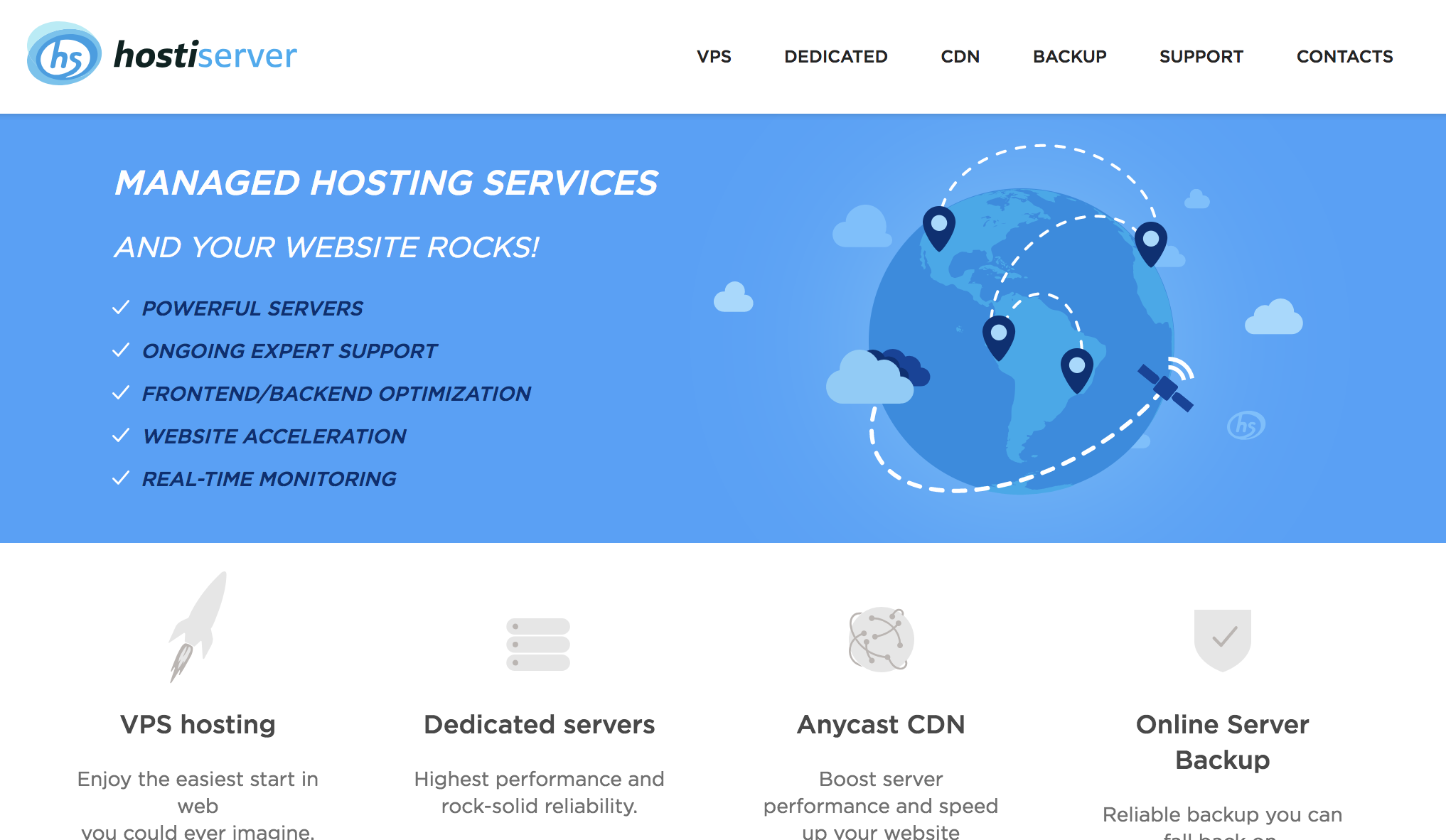It is the service that is being provided by almost all the organizations and companies, as it allows organizations and individuals to post a website or web page onto the Internet. It is a business that provides the technologies and services needed for the site or webpage to be viewed on the Internet. The focal point is that web hosting is a key to a fortune. It can be used for advertising and marketing. If you introduce or develop a new product, you may advertise using the World Wide Web. It can help your product to be known by many and can even help you to improve your work. Try hostiserver.com/vps for managed hosting services. It has powerful servers, real-time monitoring, ongoing expert support and website acceleration.
There are different types of web hosting including shared hosting and cloud hosting. Below is a quick guide for people who do not have much information about shared web hosting or cloud web hosting.
Shared Hosting
In shared web hosting, the user rents a small portion of a physical server which is shared by many other users. This means that all the server resources such as bandwidth, database, space, FTP accounts and email accounts are shared by multiple websites being hosted by your server. There is no fixed number of websites that a server may host. The number could be in hundreds or even thousands.

Before you decide on whether to choose a shared hosting plan for your website or not, you need to understand the many advantages and disadvantages that come with the service. Here are some prominent advantages of shared hosting that you can benefit from, along with some of the disadvantages that may leave you with no option but to switch to hosting plans like cloud hosting or a VPS.
Advantages
The cost of shared web hosting is less because the resources are divided between multiple websites. And you can save more by visiting https://hostingcoupon.codes/ to get discounts. A website with minimal requirements or a low number of visitors can easily be managed through shared web hosting. For websites that have low traffic, the speed can be perfectly acceptable because the load is not that much. The website can be managed by the webmaster with control panel tools. The control panel tool is user-friendly and versatile, due to which, some level of customization is available. Users can also manage a range of features including uploading their files and images, as well as checking website statistics.
Disadvantages
While this type of web hosting is great for less demanding projects, it has its limits. A website with large incoming traffic will have problems with a shared server because the resources will be limited. Another drawback of shared resources is that the website speed can get slow in case of large traffic. If your website’s performance is not great, your SEO ranking will decrease, which will be bad for your business. Shared web hosting is much riskier regarding security because various websites share the server and even a single bad website can negatively affect you. Other than that, shared servers are very prone to hacking attacks. That is why, while choosing a shared web hosting company, you should make sure if the company is providing the necessary security options to you like SSL certificates, etc.
Cloud Hosting
Cloud hosting primarily depends upon the sharing among people. It allows a person to share rapidly and can be vital for a business. It involves a distinct and secure cloud-based environment in which only the specified client can operate. Cloud hosting uses an underlying pool of physical computing resource will provide computing power as a service within a virtualized environment. However, under the private cloud model, the cloud is only accessible by a single organization. Therefore the organization has greater control and privacy.
There is no need for replacement or up gradation if you prefer cloud hosting as your system of developing business. The necessary money required is during the usage and the processing of the cloud hosting. It is more like a need-based system and avoids the idea of extra stuff. With the help of Techolution Cloud Automation Services, the data becomes much portable and can be easily shared from a network to a cloud and then can be retained at another device. It can be done regardless of our location. Any employee can easily access the data to be transmitted at any time.
Advantages
As compared to shared hosting, cloud hosting provides increased reliability, security, and performance. Cloud hosting is scalable, which means it can use multiple servers as one. Large websites go for cloud hosting because of the unlimited resources and its ability to scale according to the requirements of the website. In cloud hosting, if one server fails it does not mean that your website will crash. If a server goes down, or even if it is having problems with managing the website’s traffic, other servers will take over. This makes cloud web hosting the obvious choice for large businesses and websites.
In cloud hosting a significant advantage concerning cloud hosting is the agility of programs while being processed. In any business nowadays, quickness and agility are to be guaranteed. A client favors a system with quick response. This also improves the overall performance of your website. Cloud web hosting also backs up your data regularly, so in case of data loss, data recovery is quite easy.
Disadvantages
With its perks, there are some disadvantages of cloud hosting as well. Cloud hosting is more expensive than shared hosting so some people might not be able to afford it. A lot of people prefer their data to be stored on a physical server that they can put their hands on. For such users, a private cloud is a preferred option. Cloud hosting companies that are not thorough in their setup can also face downtime. When we say that your data in the cloud is easily accessible, it also means that you would be able to access the data only when the internet is available. Although in today’s age that is not a problem anymore, but still it is a risk that you should consider. Within cloud-hosted infrastructure, the users may have less control over the functions. A cloud provider’s management policies might limit customers about what he or she can and cannot do with their deployments. Customers have control of their data, applications, and services, but they may not have full control over their backend infrastructure.
Conclusion
Cloud hosting and shared hosting both have their sets of benefits and drawbacks. Every website has different needs and requirements and what matters is whether the web host meets them. Shared hosting is recommended for websites that do not need much resources or space, and do not generate large traffic. On the other hand, for websites who need high maintenance because of the large traffic, cloud hosting is a better option. The correct hosting option will depend on the website or blog that you are running. All the advantages mentioned above will only matter if the web hosting company you choose provides the kind of services that it promises. Before making your decision, analyze the needs of your website and make sure that the web hosting company is reliable.
About the Author:
 Barbara Morgan is a freelance writer, IT enthusiast and a California native. She began reviewing hosting providers when managed hosting just appeared on the market. Mark loves enlighten hosting related topics in all its forms. She regularly posts her articles at one of the managed hosting providers in the USA and NL website – Hostiserver.com
Barbara Morgan is a freelance writer, IT enthusiast and a California native. She began reviewing hosting providers when managed hosting just appeared on the market. Mark loves enlighten hosting related topics in all its forms. She regularly posts her articles at one of the managed hosting providers in the USA and NL website – Hostiserver.com

